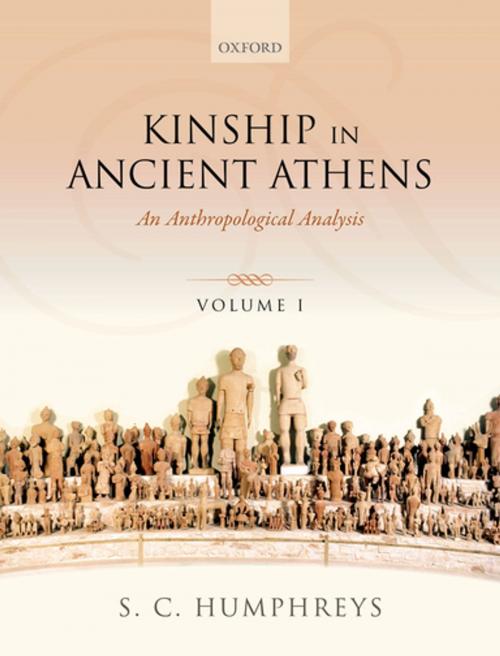Kinship in Ancient Athens
An Anthropological Analysis
Nonfiction, History, Ancient History, Greece, Social & Cultural Studies, Social Science| Author: | S. C. Humphreys | ISBN: | 9780191092404 |
| Publisher: | OUP Oxford | Publication: | November 8, 2018 |
| Imprint: | OUP Oxford | Language: | English |
| Author: | S. C. Humphreys |
| ISBN: | 9780191092404 |
| Publisher: | OUP Oxford |
| Publication: | November 8, 2018 |
| Imprint: | OUP Oxford |
| Language: | English |
The concept of kinship is at the heart of understanding not only the structure and development of a society, but also the day-to-day interactions of its citizens. Kinship in Ancient Athens aims to illuminate both of these issues by providing a comprehensive account of the structures and perceptions of kinship in Athenian society, covering the archaic and classical periods from Drakon and Solon up to Menander. Drawing on decades of research into a wide range of epigraphic, literary, and archaeological sources, and on S. C. Humphreys' expertise in the intersections between ancient history and anthropology, it not only puts a wealth of data at readers' fingertips, but subjects it to rigorous analysis. By utilizing an anthropological approach to reconstruct patterns of behaviour it is able to offer us an ethnographic 'thick description' of ancient Athenians' interaction with their kin that offers insights into a range of social contexts, from family life, rituals, and economic interactions, to legal matters, politics, warfare, and more. The work is arranged into two volumes, both utilizing the same anthropological approach to ancient sources. Volume I explores interactions and conflicts shaped by legal and economic constraints (adoption, guardianship, marriage, inheritance, property), as well as more optional relationships in the field of ritual (naming, rites de passage, funerals and commemoration, dedications, cultic associations) and political relationships, both formal (Assembly, Council) and informal (hetaireiai). Among several important and novel topics discussed are the sociological analysis of names and nicknames, the features of kin structure that advantaged or disadvantaged women in legal disputes, and the economic relations of dependence and independence between fathers and sons. Volume II deals with corporate groups recruited by patrifiliation and explores the role of kinship in these subdivisions of the citizen body: tribes and trittyes (both pre-Kleisthenic and Kleisthenic), phratries, genê, and demes. The section on the demes stresses variety rather than common features, and provides comprehensive information on location and prosopography in a tribally organized catalogue.
The concept of kinship is at the heart of understanding not only the structure and development of a society, but also the day-to-day interactions of its citizens. Kinship in Ancient Athens aims to illuminate both of these issues by providing a comprehensive account of the structures and perceptions of kinship in Athenian society, covering the archaic and classical periods from Drakon and Solon up to Menander. Drawing on decades of research into a wide range of epigraphic, literary, and archaeological sources, and on S. C. Humphreys' expertise in the intersections between ancient history and anthropology, it not only puts a wealth of data at readers' fingertips, but subjects it to rigorous analysis. By utilizing an anthropological approach to reconstruct patterns of behaviour it is able to offer us an ethnographic 'thick description' of ancient Athenians' interaction with their kin that offers insights into a range of social contexts, from family life, rituals, and economic interactions, to legal matters, politics, warfare, and more. The work is arranged into two volumes, both utilizing the same anthropological approach to ancient sources. Volume I explores interactions and conflicts shaped by legal and economic constraints (adoption, guardianship, marriage, inheritance, property), as well as more optional relationships in the field of ritual (naming, rites de passage, funerals and commemoration, dedications, cultic associations) and political relationships, both formal (Assembly, Council) and informal (hetaireiai). Among several important and novel topics discussed are the sociological analysis of names and nicknames, the features of kin structure that advantaged or disadvantaged women in legal disputes, and the economic relations of dependence and independence between fathers and sons. Volume II deals with corporate groups recruited by patrifiliation and explores the role of kinship in these subdivisions of the citizen body: tribes and trittyes (both pre-Kleisthenic and Kleisthenic), phratries, genê, and demes. The section on the demes stresses variety rather than common features, and provides comprehensive information on location and prosopography in a tribally organized catalogue.















